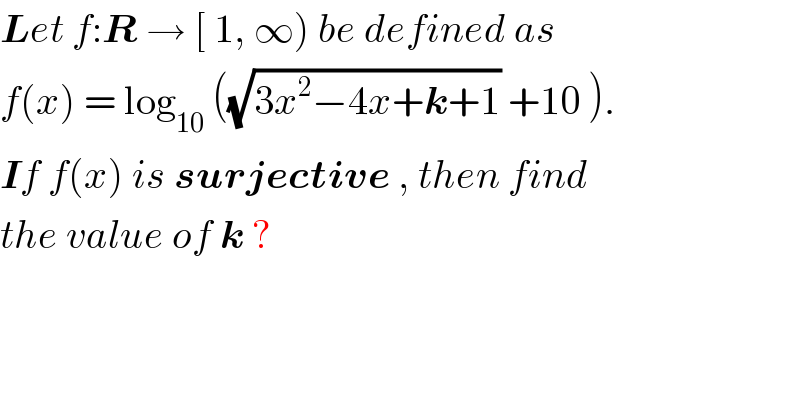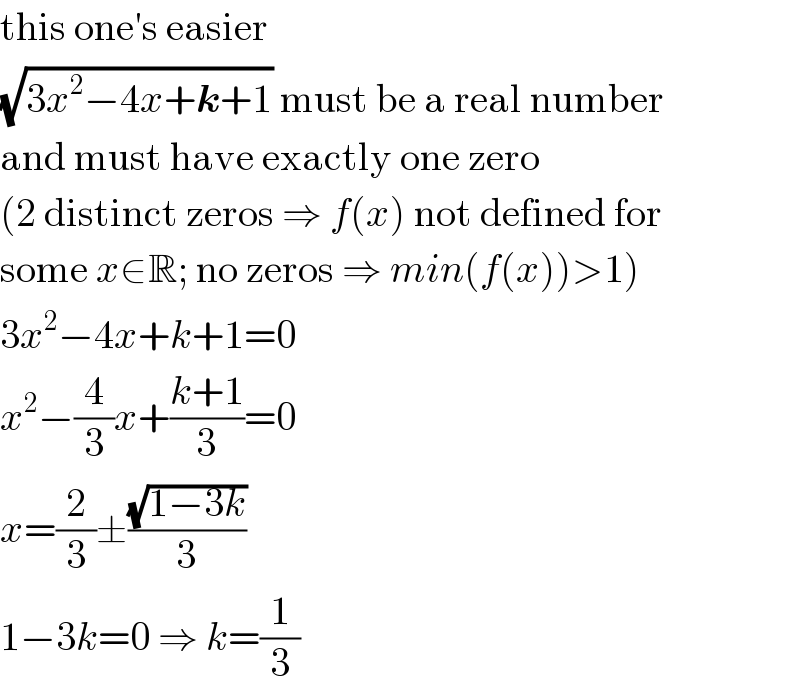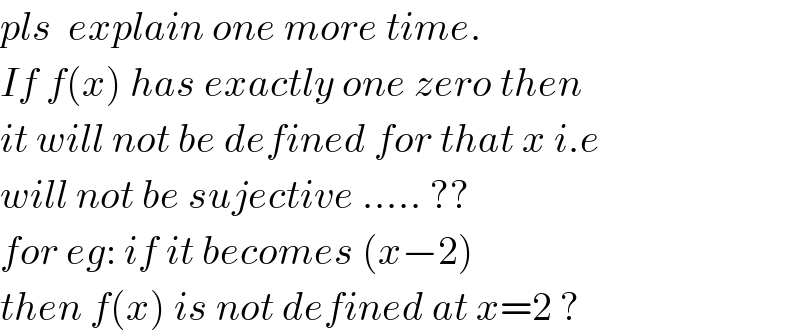
Question and Answers Forum
Previous in Relation and Functions Next in Relation and Functions
Question Number 33818 by rahul 19 last updated on 25/Apr/18

Answered by MJS last updated on 26/Apr/18

Commented by rahul 19 last updated on 28/Apr/18

Commented by MJS last updated on 28/Apr/18
![not f(x), I only talk about the root f(x)=log_(10) ((√(g(x)))+10) g(x) has { ((no zero ⇒ (√(g(x)))>0 ∧ f(x)>1 ∀x∈R ⇒)),((⇒ ∃y∈[1; ∞[: y≠f(x)∀x∈R)),((1 zero p ⇒ (√(g(p)))=0 ⇒ f(p)=1 ⇒)),((⇒ ∀y∈[1; ∞[: ∃x∈R: y=f(x) ⇒ f(x) is surjective)),((2 zeros p, q ⇒ (√(g(x)))∉R ∀x∈]p; q[ ⇒)),((⇒ D=R\x≠R ∀x∈]p; q[)) :}](Q33959.png)
Commented by rahul 19 last updated on 29/Apr/18

